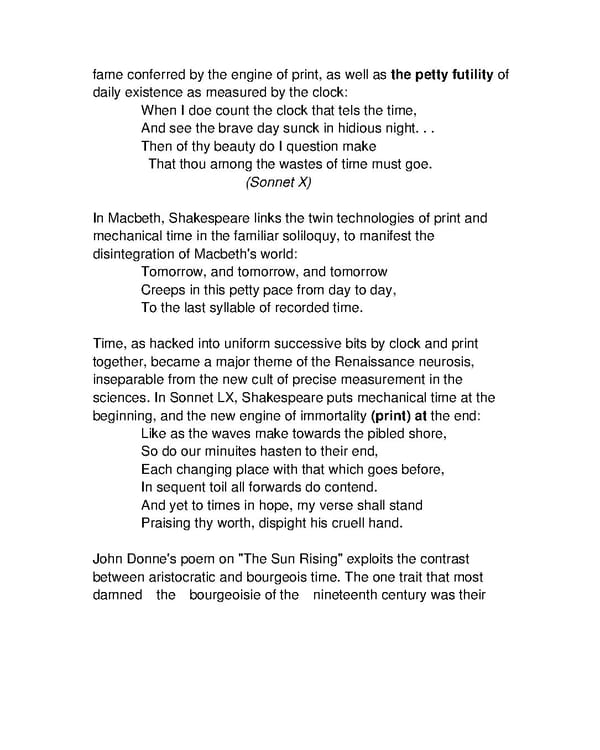fame conferred by the engine of print, as well as the petty futility of daily existence as measured by the clock: When I doe count the clock that tels the time, And see the brave day sunck in hidious night. . . Then of thy beauty do I question make That thou among the wastes of time must goe. (Sonnet X) In Macbeth, Shakespeare links the twin technologies of print and mechanical time in the familiar soliloquy, to manifest the disintegration of Macbeth's world: Tomorrow, and tomorrow, and tomorrow Creeps in this petty pace from day to day, To the last syllable of recorded time. Time, as hacked into uniform successive bits by clock and print together, became a major theme of the Renaissance neurosis, inseparable from the new cult of precise measurement in the sciences. In Sonnet LX, Shakespeare puts mechanical time at the beginning, and the new engine of immortality (print) at the end: Like as the waves make towards the pibled shore, So do our minuites hasten to their end, Each changing place with that which goes before, In sequent toil all forwards do contend. And yet to times in hope, my verse shall stand Praising thy worth, dispight his cruell hand. John Donne's poem on "The Sun Rising" exploits the contrast between aristocratic and bourgeois time. The one trait that most damned the bourgeoisie of the nineteenth century was their
 Understanding Media by Marshall McLuhan Page 166 Page 168
Understanding Media by Marshall McLuhan Page 166 Page 168